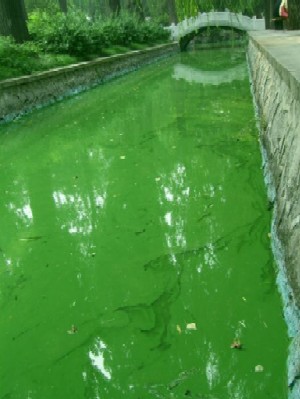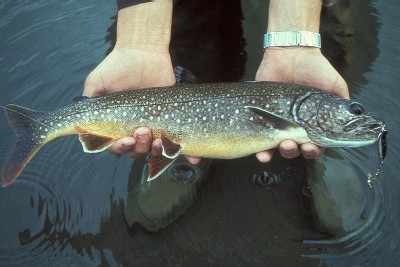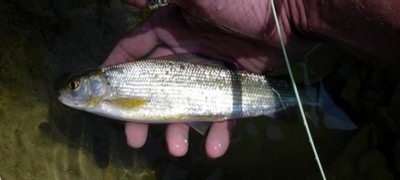The dreaded algae Didymosphenia geminate or didymo has found its way to the clean waterways of New England. Otherwise known as rock snot due to its cottony green or white appearance, this algae has become a cause of worry for fishermen and naturalists. The reason for this lies in the fact that this algae has the potential to bloom into thick masses with long stalks. These tend to cover the bottoms of some streams and threaten aquatic, insect, and fish populations by suffocating their source of food.

Algae
Further, rock snot is difficult to get rid of. Experts say the only hope is to stop it from spreading any further. But that is close to impossible as a single cell of this alga that is carried on fishing gear, clothes or skin can be transferred into cleaner waters thereby polluting them immediately.
This algae has already been found in New Zealand and several other parts of the American continent. Indeed, over the past ten years, its presence has been recorded in British Columbia, California, Washington, Alaska, Idaho, Montana, Nevada, Utah, Wyoming, Colorado, the Dakotas, Missouri, Arkansas and Tennessee.
Karl Hermann, a regional waste monitoring and assessment coordinator for the EPA in Denver notes:
We’re starting to realize it’s all over the place.
Lawton Weber, a fly fishing guide, who first saw it on the Connecticut River in northern Vermont this June says:
It scares me. It’s an aesthetic eyesore when it’s in full bloom mode and its impact on the trout population is going to be significant.

Trout
The appearance of this algae is a big headache for the regions around the White River, Connecticut River and the Batten Kill in Vermont. In recent time These have become a heaven for fishing trout – a fish that is generally difficult to catch. A similar situation is emerging at the Matapedia River in Quebec famed for salmon.

Salmon
To reduce the possibility of the algae spreading, the northern American states of Vermont and New Hampshire are taking no chances. A radio campaign has been launched which is urging river users exercise responsibility when using waterways.
Scott Decker, program supervisor with the New Hampshire Fish and Game Department said:
Please don’t take chances, disinfect your fishing gear.
There is also an increasing concern about the impact of the algae on fish populations as it is already believed to have killed off the brown trout populations in parts of South Dakota.
David Deen, a Vermont lawmaker, fishing guide, and river steward for the Connecticut River Watershed Council noted:
Once you remove (insects), young fish don’t have anything to eat. Growth is slowed at best, and at worst they could starve to death.
Apart from threatening aquatic life, rock snot is also an ugly sight. Fishermen complain that they are unable to cast their lines and when they manage to, they retrieve them covered in the algae.
Jeff Williams, Arkansass trout program supervisor, said:
Visitors were disappointed to find that the White River wasn’t as clean of a river as it used to be. The gravel is covered with didymo.
Rock snot was never widespread in the past. Moreover, it was more commonly found in high-altitude, low-nutrient rivers. Its appearance in multiple locations especially in Southern States like Missouri, Arkansas and Tennessee and rapid spread is therefore confusing scientists searching for reasons for the boom in its growth.
Spaulding claims:
It seems to be something different – this expansion and production of big masses in the U.S.
Some believe that dammed rivers that provide a constant flow of water encourage it to bloom. Interestingly, drought and changes in sunlight may also play a role its rapid spread.
So what’s the solution?
In New Zealand, where the algae has infested as many as 55 waterways on South Island and is around 7 inches thick, scientists are using copper treatment to manage it. Anyone who knowingly spreads the algae is also being treated as a criminal with a penalty of up to five years in prison and/or a fine of up to $100,000. A similar provision may be underway in North America very soon.
Read: Yahoo
Images: Wikimedia


